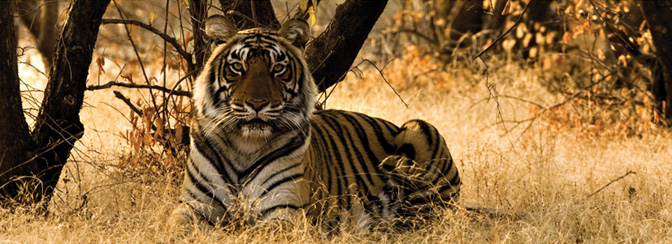
On July 25th, 2012, CNN reported that the Supreme Court of India placed a temporary ban on “tiger tourism” in India. This has caused quite a stir in the travel industry, causing travelers to question if their presence is beneficial to tigers, or is impeding their ability to thrive in their natural environment. The ban was issued after a local environmentalist reported his findings that ecotourism was harming the tigers’ environment and breeding grounds. Specifically, the environmentalist reported that resorts and shops had been constructed in reserves without official permission.
On the same day, The Telegraph similarly reported the ban, and interviewed Julian Matthews, the chairman of Travel Operators for Tigers. In his interview, Matthews echoes our feelings on responsible, sustainable travel. There are a large number of tiger reserves in India. These include reserves that are untouched by any official tourism, and reserves whose infrastructure and protection is almost fully supported by ecotourism. Of these two types of reserves, the second type houses the most healthy, thriving tigers due to the protection from poachers and hunters.
The supreme court will release its final ruling regarding the temporary ban on August 22nd, and at stake is the world’s best destination for observing tigers in their natural habitat. If the ban is lifted, it will not affect the country’s peak season for tiger game driving, which is around October.
Global Basecamps offers all manner of India tours, including those that include game driving through India’s most tiger-populous reserves.













